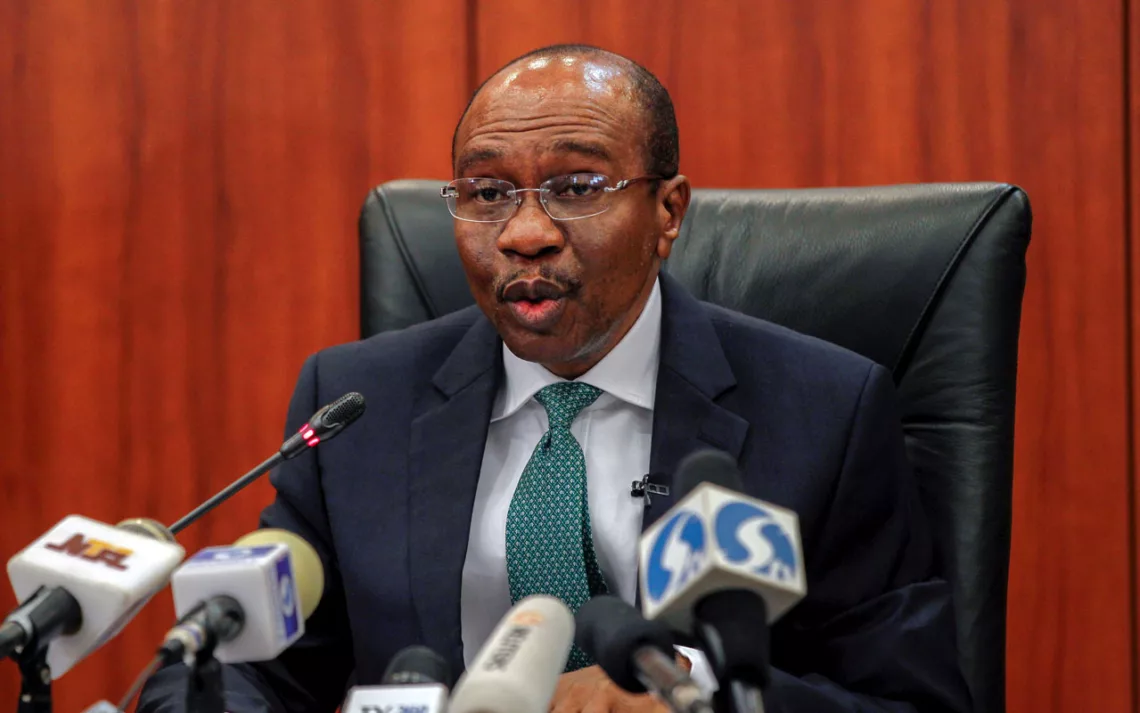It’s been three months since the Central Bank of Nigeria (CBN) announced its policy of naira redesign. On October 26, 2022, the apex bank announced that it was going to redesign the N200, N500 and N1,000 denominations and urged Nigerians to swap the old naira notes with the new ones.
According to the CBN Governor, Mr. Godwin Emefiele, the apex redesigned the naira after getting an approval from President Muhammadu Buhari in order to check the increasing ease and risk of currency counterfeiting evidenced by several security reports, and the increased risk to financial stability as well as the worsening shortage of clean and fit currency, with the attendant negative perception of the central bank.
Emefiele said that by the approval, the redesigned banknotes will circulate concurrently with the old notes, up to 31 January 2023 after which date the old notes loses their legal tender status. However, President Muhammadu Buhari extended the deadline by another 10 days to 10 February 2023 for old notes to circulate as legal tender.
He assured Nigerians that the CBN, working with the Deposit Money Banks and other very important stakeholders such as the Economic and Financial Crimes Commission (EFCC), the Independent and Corrupt Practices Commission (ICPC) and the Nigerian Financial Intelligence Unit (NFIU) are working together to ensure that the ultimate goal, which is to deliver to all Nigerians, a new currency that meets global standards is achieved.
He also said that the apex bank is aware of the difficulty being faced by Nigerians in accessing the new currency at the initial stages of its issue and circulation but pleaded with all to show some understanding as everything is being done to correct some of the observed lapses in the implementation of the programme.
Speaking on why the CBN introduced the naira redesign policy, he said, ‘‘As you all know, currency management is a key function of the Central Bank of Nigeria, as enshrined in Section 2(b) of the CBN Act 2007. Indeed, the integrity of a local legal tender, the efficiency of its supply, as well as its efficacy in the conduct of monetary policy are some of the hallmarks of a great Central Bank.’
‘‘Besides, the general practice across the globe is that a central bank should normally redesign its currency within 5-8 years. From the on-set of this currency redesign program, we made it clear that for over 19 years, the CBN has not been able to undertake this important currency and liquidity management function that has important ramification for the effectiveness of monetary policy.
‘‘Secondly, we aim to increase financial inclusion in the country by reducing the number of the unbanked population. Thirdly, our aim is to support the efforts of our security agencies in combating banditry and ransom-taking in Nigeria through this program and we can see that the military are making good progress in this important. Available data at the Central Bank of Nigeria showed that in 2015, Currency-in-Circulation was only N1.4trillion. As of October 2022, currency in circulation had risen to N3.23 trillion; out of which only N500 billion was within the Banking System and N2.7 trillion held permanently in people’s homes. Ordinarily, when CBN releases currency into circulation, it is meant to be used and after effluxion of time, it returns to the CBN thereby keeping the volume of currency in circulation under the firm control of the CBN. It should also be noted that the notes in private homes and outside the banking system are not available for economic activities and thus may affect the economy attaining its potential growth.’’
He disclosed that so far and since the commencement of the programme, the CBN has collected about N2.1 trillion; leaving a balance of about N900 billion Emefiele further explained that efforts are ongoing to ease the distribution of the new notes.
What are the benefits of a currency redesign policy? According to Emefiele, ‘‘It is expected to reduce the amount of cash in underground or illicit economy, truncate the activities of racketeers, and obliterate rent-seeking businesses in the black market. By reducing currency outside banks, he said it will shrink money stock and accordingly lower the long-run path of inflation. ‘‘The ensuing deflationary pressure could elicit interest rate cuts that will in the short- to medium-term boost economic activities, spur aggregate demand, and enhance output growth. By spurring more people to use bank accounts, this policy will further increase bank account ownership and increase the use of accounts by enhancing people’s saving behavior. It could encourage some hitherto informal business operators to formalize the pattern of transactions and adopt more formal settlement channels.
‘‘In addition, the short-term decline in cash holding and the increased formalisation of business activities as the cashless policy forces more economic agents to open bank accounts, will also boost fiscal policy. With more transactions going through e-channels and bank accounts, more agents come within view of the government’s tax net. This enlarges the base of taxable activities and increases the possibility of more tax receipts by various tiers of government. In the long-term, the policy improves the sophistication of tax collection and would no doubt reduce tax evasion and tax avoidance. As experiences from other jurisdictions have shown, effective currency redesign can support regulatory reform, increased legislative reach and coordinated fiscal and structural policies,’’ he said.
Also, Nigeria’s economy will, according to him, enjoy more benefits of a currency redesign which include: reduction of broad money supply; lowering inflation; collapse of illegal economy activities and facilitation of easy loans.
Experts have noted that a notable benefit of the policy is that it will drive the CBN’s cashless policy. According to an economist, Dr Micheal Ojo, cashless policy is simply a CBN’s initiative to reduce the amount of physical cash in circulation thereby encouraging the use of electronic platforms for settlement or payment for goods and services. He said, ‘‘Going cashless is not supposed to be controversial in a fast-growing economy such as ours. It helps to curb corruption and the flow of black money, which results in an increase of economic growth.’’
Also, a bank chief who pleaded anonymity said the world today drives on innovation and speed has become an element of development which is what the various digital cashless platforms offer. He said, ‘‘The only gap to bridge regarding the cashless policy is improvement in the accompanying technology such that incidences of failed transactions are reduced or even eliminated. The public should understand that bank notes with all their security features are expensive to print and any policy that increases the length of time they can stay in the monetary system before they are turned over should be encouraged.
‘‘The cashless transfer policy posts more benefits. Going cashless not only eases one’s life but also helps authenticate and formalise the transactions that are done. This helps to curb corruption and the flow of black money, which results in an increase of economic growth.’’
An IT expert, James Obiora said going cashless also has health benefits. ‘‘With physical currency, the chance of spreading of germs is more. Reducing the amount of use of paper currency will reduce the germ transmission,’’ he said.
Chairman of Goldmark Education Academy, Mike Obadan said that against the backdrop of the current economic challenges facing the country, both the naira notes redesign and the associated revised cash withdrawal limits are in the interest of the economy. He urged Nigerians to support the policy.





